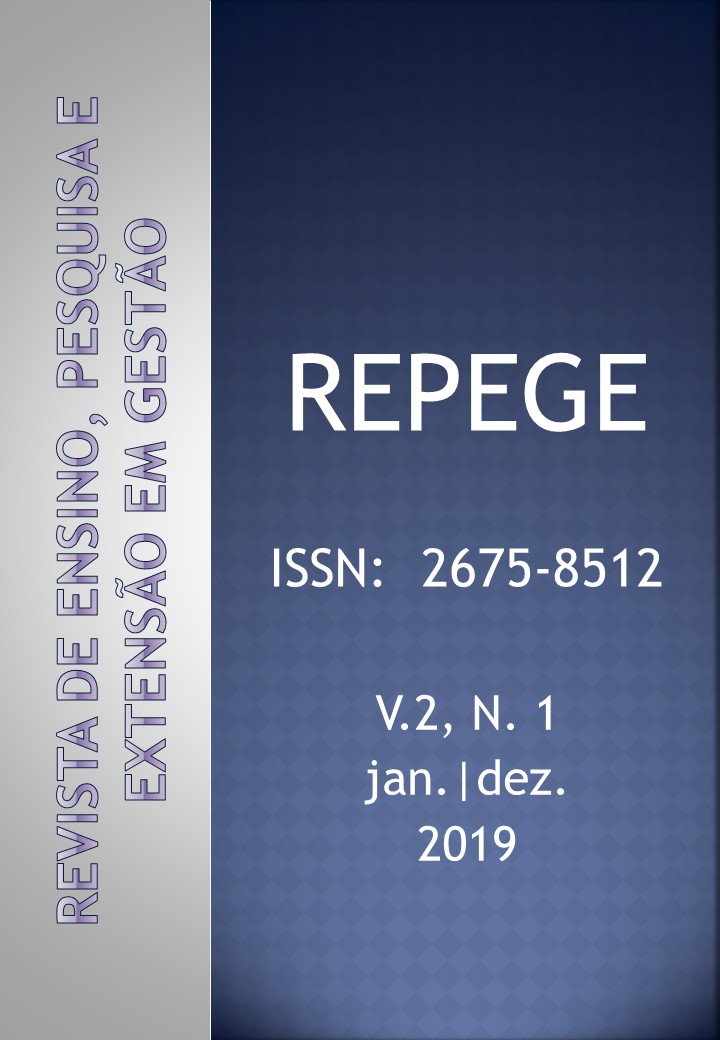Reverse Logistics of Solid Waste: A bibliometric analysis
Keywords:
Solid Waste; Reverse logistic; Bibliometric AnalysisAbstract
Contemporary society has increasingly higher levels of consumption as a result of the emergence of new technologies that generate more and more waste, whether residues from the production process or post-consumption residues. This new scale of disposability is responsible for the increase in the production of waste and, consequently, for many of the environmental problems that exist today. This study aims to identify bibliometric characteristics of publications of scientific articles in the Scopus database between the years 2009 and 2017. First, an analysis of the data related to the term “Reverse Logistics” was carried out, then the same type of analysis was performed of the data related to the term “Solid Waste” and finally the joint analysis of the two terms. The results are presented in two categories: the global assessment presents the global view of publications on the topics; the evolution of production; the comparison of national production with other countries; and the classification by university, area of study; periodicals and key words. The national assessment shows the evolution of production; the classification by university, journals, keywords and the researchers with the largest number of publications. The study determined that the number of published articles is expanding significantly, with emphasis on United States, China and Brazil. Brazil is highlighted in multidisciplinary studies in which reverse logistics and solid waste appear together as an object of research.
Downloads
References
ABNT – ASSOCIAÇÃO BRASILEIRA DE NORMAS TÉCNICAS. NBR n° 10.004 – Resíduos Sólidos – Classificação. Disponível em < http://www.unaerp.br/documentos/2234-abnt-nbr-10004/file> Acesso em 19 de janeiro de 2018.
ALMEIDA, Kelma Maria Vitorino. Logística Reversa para gestão de resíduos e coprodutos da cadeia de biodiesel: estudo de caso em usinas do nordeste brasileiro. 2012. 197p. Dissertação (Doutora em Engenharia Civil) - Universidade Federal de Pernambuco – UFPE, Recife, 2012. Disponível em: < http://repositorio.ufpe.br/handle/123456789/10635> Acesso em: 24 de janeiro de 2018.
BARTOLOMEU, Daniela Bachci; BRANCO, José Eduardo Holler; CAIXETA-FILHO, José Vicente. A logística de transporte dos resíduos sólidos domiciliares. In: CAIXETA-FILHO (Org.) Logística ambiental de resíduos sólidos. São Paulo: Atlas, 2011.
BRASIL, 2010. Lei 12.305, de 02 agosto de 2010. Institui a Política Nacional de Resíduos Sólídos; altera a Lei n° 9.605, de 12 de fevereiro de 1998; e dá outras providências. Brasília: Diário Oficial da União.
CALDERONI, S.(2003) Os bilhões perdidos no lixo. São Paulo: Humanitas FFLCH/USP.
CSCMP, Council of Supply Chain Management Professionals. Glossary of Terms. (2013). Disponível em: <http://cscmp.org>. Acesso em: 23 de Janeiro de 2018.
MACIAS-CHAPULA, C. A. (1998). O papel da informetria e da cienciometria e sua perspectiva nacional e internacional. Ciência da informação, 27(2). Disponível em: < http://www.scielo.br/pdf/ci/v27n2/2729805.pdf> acesso em: 12 de janeiro de 2017.
MENDONÇA, Jane Corrêa Alves; VASCONCELOS, Priscila Elise Alves; NOBRE, Luan Batista Oliveira; CASAROTTO, Eduardo Luis; MOROZINI, João Francisco (Ed.). Logística reversa no brasil: um estudo sobre o mecanismo ambiental, a responsabilidade social corporativa e as legislações pertinentes. Revista Capital Científico, vol. 15, n.2, abr./jun. 2017.
HOOD, William. W.; WILSON, Concepción. S. (2001). The literature of bibliometrics, scientometrics, and informetrics. Disponível em: <http://www.asiaa.sinica.edu.tw/~ccchiang/GILIS/LIS/p291-Hood.pdf> acesso em: 12 de janeiro de 2017.
LEITE, Paulo Roberto. Logística reversa: meio ambiente e competitividade. São Paulo: Pearson Prentice Hall, 2009.
ROGERS, Dale S., TIBBEN.LEMBKE, Ronald S.. Going Backwards: Reverse Logistics Trends and Practices. Reno, University of Nevada: 1999. Disponível em: < http://www.abrelpe.org.br/imagens_intranet/files/logistica_reversa.pdf> Acesso em>: 23 de janeiro de 2018.
SILVA, Poliana Luz Macedo da, (2014). Desenvolvimento sustentável e suas contradições. Revista Internacional de Ciências, 4(2), 107-119. Disponível em: http://www.e-publicacoes.uerj.br/index.php/ric/article/view/12593/10596 Acesso em: 19 de Janeiro de 2018.
SILVA, Tarcísio Augusto Alves de; LIMA, Laíse Soares (2014). Desenvolvimento sustentável: um debate sobre suas impossibilidades. EDUCTE: Revista Científica do Instituto Federal de Alagoas, 1(1). Disponível em: <http://www.kentron.ifal.edu.br/index.php/educte/article/view/27/19> Acesso em: 19 de Janeiro de 2018.
TAGUE-SUTCLIFFE, J. (1992). An introduction to informetrics. Information processing & management, 28(1), 1-3. Disponível em: < https://www.sciencedirect.com/science/article/pii/030645739290087G> acesso em: 27 de maio de 2018.






